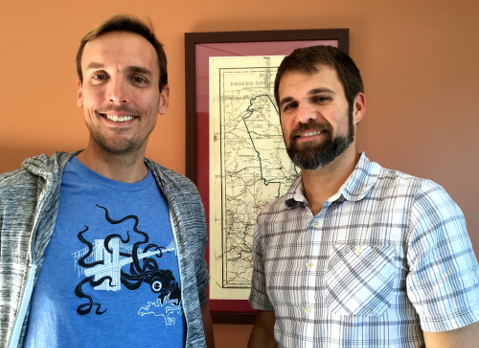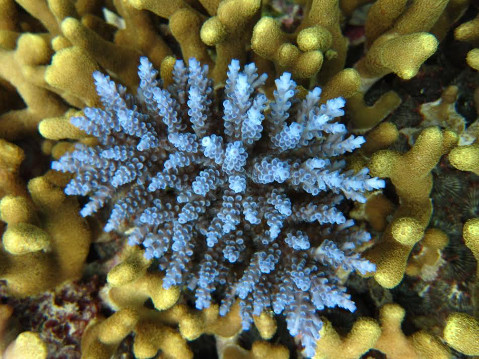Examining Mutual Benefits in Trophic Latitudes
UCSB Ecosystem Researchers Find Added Nutrients Can Decrease Symbiotic Behaviors

“[C]ooperation is rarely favored in nature,” states a new paper by two UCSB researchers, and they’re talking about corals and fungi, rather than presidential candidates, though the two groups share similar traits: “[T]heory suggests mutualisms can best be viewed as reciprocal exploitations that provide a net benefit to each partner.”
Like the echo chamber in which national U.S. politics takes place, the energy generated between symbiotic pairings like corals and algae doesn’t always get picked up by the other. What prompts these inefficiencies in a biologic equation can be due to the addition of nitrogen from fertilizer runoff, sewage, or even greenhouse gases dissolving in sea water, concludes Professor Deron Burkepile and PhD student Andy Shantz’s recent paper in Ecology Letters. The results could include less sequestration of carbon from the atmosphere or a loss of fish habitat.

The two examined more than 300 sets of data on relationships between photosynthetic organisms (plants, for the most part, that make their own food) and creatures that seek food in the environment — organisms that depend on each other for a portion of the substances they need to either create food or eat. Called phototrophs and heterotrophs, the pairs’ mutually helpful co-existence began to lessen when man-made nutrients were added, they document.
In the case of corals and algae, algae normally take in sunlight and carbon dioxide, and will produce extra carbohydrates that the coral — among which they grow — use as food. In turn, the coral creatures poop out nitrogen that the algae need. “[B]ecause tropical waters tend to be nutrient-poor, they don’t have enough nitrogen to achieve their growth potential,” explained Shantz. “So, the algae trade some of the excess carbohydrates to the coral for nitrogen until they have maximized their growth.”
When the algae gain nitrogen through nitrate runoff or atmospheric nitrous oxides, however, they must use extra energy — or more carbs — to process it into nitrogen. That results in less sugars, or food, to give to the corals. “Theirs is an increased cost because they get a smaller cut of the carbohydrates. Hence, we see algae do better but coral growth decline,” said Shantz.

Corals are composed of little polyps that create the limestone outer structure of coral, attaching themselves permanently to rock or other corals. They are dependent on the algae, zooxanthellae, to survive. The loss of corals can lead to “fewer fishes on those reefs,” Burkepile explained, “and less of a source of protein and income for local communities.’
In the case of terrestrial plants, a mutually beneficial interaction occurs between plant roots and a multitude of bacteria and fungi in the soil. Like the algae/coral equation, the addition of nitrogen or phosphorus causes the plant to release less carbohydrate (or carbon-based foods, like glucose) for the soil microorganisms to use. The result is that “if the heterotrophs suffer under nutrient pollution,” Burkepile said, “then the plants may lose some of their resistance to … stressors” like drought and disease.
Burkepile and Shantz’s study also found that certain ratios of nitrogen to phosphorus had lesser consequences to heterotrophs, although it depended on the type of organism involved. Also, they ponder whether nitrogen-enriched plants would sequester carbon to a greater extent, or if that would be offset by the harm to the soil, which accounts for “as much as 70 percent of carbon storage in some ecosystems.”
Excess fertilizer, atmospheric nitrogen pollution, stress, carbon exchange: it’s all part of the science of global change in the 21st century, they conclude.


